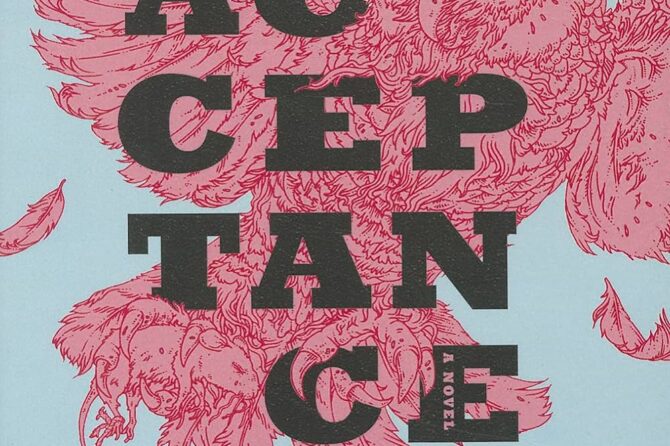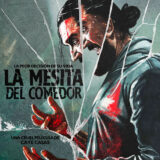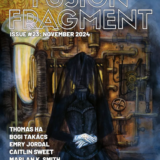Amazing stories is currently running the Gernsback Writing Contest. Of course I am not eligible to participate nor am I involved in the judging process, but as a fan, I am on the edge of my seat, anxious to see what our talented friends come up with.
This subject inevitably sparked a recent conversation at our house about short stories of SF/F/H and what kind of tale best fits this type of format. We settled on character driven genre work where the story captures you in the feels and leaves you contemplating the “what-if” factor, even after the last word. It turned out the topic was not limited to literary form, so we also started bringing up some of our favorite television programs – particularly the ones with plots specializing in “one shot” stories because they leave you satisfied, yet have an ending with just enough questions to make you think.

This sent me scrambling for my copy of Stories from the Twilight Zone by Rod Serling, a small collection of six novelettes first published by Bantam Books in 1960. The copy reviewed here is from the Bantam Pathfinder edition printed in August 1973 at a meager list price of $0.75. The initial plan is to look at each installment separately in individual posts with the intention of providing specific reasons why the work exemplifies the short story in SF/F/H writing.
The first story in the collection is The Mighty Casey, an adaptation of the original television episode first broadcast on June 17, 1960. The advantage of analyzing this and other pieces from Serling is that many were available in both print and screen.
The Brooklyn Dodgers baseball team is in last place of their division, so in desperation, manager Mouth McGarry is holding open tryouts. Just when he thinks the audition is an exercise in futility, a strange man introduces himself as Dr. Stillman and he has brought a young left handed pitching prospect who just might be the team’s savior.
After Casey throws a few various pitches to a surprised catcher, McGarry learns from the doctor that the pitcher is actually an experimental robot. With mixed feelings, the manager decides to go ahead and use the android. After many successful outings from Casey, the team begins to gain recognition in the sports world as well as the division standings.
But when Casey is “beaned” in the head by a ball during a game against their arch rival Philadelphia Phillies, the Dodgers’ team physician immediately sends him to the hospital. There, the attending doctor checking for the standard vital signs is shocked to discover Casey has no pulse, no heartbeat.
The news was broken the next morning by The Daily Mirror. The commissioner of baseball decries that Casey must be suspended because he is a machine, not a “man” like the rules require. After a short debate, it is established that Casey would need a heart to be considered a human.
The story is wrapped up with Casey having a heart surgically implanted. The irony being that the pitcher does not know how to handle the newly acquired compassion. Never having felt the competiveness and ego that most players possess, Casey just “couldn’t strike out those poor fellahs” anymore. Thus, the Brooklyn Dodgers are once again a sad sack team.
Though the book’s story does not follow the televised episode verbatim (Is it The Brooklyn Dodgers or the Hoboken Zephyrs?), it does retain the overall plot as well as most of the time-stamped prose. Readers get to witness accurate dialect one might hear from a sports teams. Thankfully the game has not changed drastically over the years, so those not familiar to baseball will also get a quick education of the sport.
The theme of the story centers not on the fantastic idea of a robot humanoid, but the ethical question of allowing a non-human participate in a professional sport. Some could even compare the question to the concerns we see today regarding the recent rulings on equality. Sure it’s a stretch, but the story does raise an eyebrow toward the subject.
What about the raw compassion expressed by Casey toward the other players? Is this merely an exaggeration used to emphasize the theme’s shock and irony, or is it foretelling a social behavior we can see today in an “everyone-gets-an-award” society?
And any story that can stimulate a discussion is a worthy read.

The Mighty Casey (1960) episode of The Twilight Zone
The character development is rapid and stereotypical to a fault, but the screen version enables the audience to accept the roles even quicker. Veteran actor Jack Warden (who also starred in the 1959 episode The Lonely of The Twilight Zone) played the classic win-at-all-cost manager Mouth McGarry with just enough tongue-in-cheek style, the viewer gets to love a character they might hate otherwise. Stage and character actor Abraham Sofaer (who also appeared in the 1964 episode of Demon with a Glass Hand of The Outer Limits) was not as prolific, but still effective as Dr. Stillman.
However, the true irony has nothing to do with the story-line presented in the telecast. Screen actor Robert Sorrells (now serving 32 to life in the California Department of Correction’s for a 2004 murder and attempted murder) played the robotic athlete Casey. In what is perhaps his most notable role, it is ironic that the actor Sorrells would go on to exude the exact opposite in compassion than that of the character he played.
And what if robots were available to play sports. Would you have a problem with it? Is it an advantage or a disadvantage? Would they be required to play in their own league? Would they be treated different? Would they be offered the same rights and privileges as their mouth breathing counterparts?
Be it the story, the characters, or the moral dilemmas that they embody, the short story can be an invigorating experience for both writer and reader. When Rod Serling wrote The Mighty Casey for The Twilight Zone, he probably wasn’t too concerned about the format. But in terms of style and content, this type of adaptation is an ideal example of some of the most important elements necessary for writing a successful short story.











Rod Serling was a master story teller. Whether for The Twilight Zone, Playhouse 90 or theatrical films he wrote with a moral clarity that is hard to find today. Great article, Ricky.